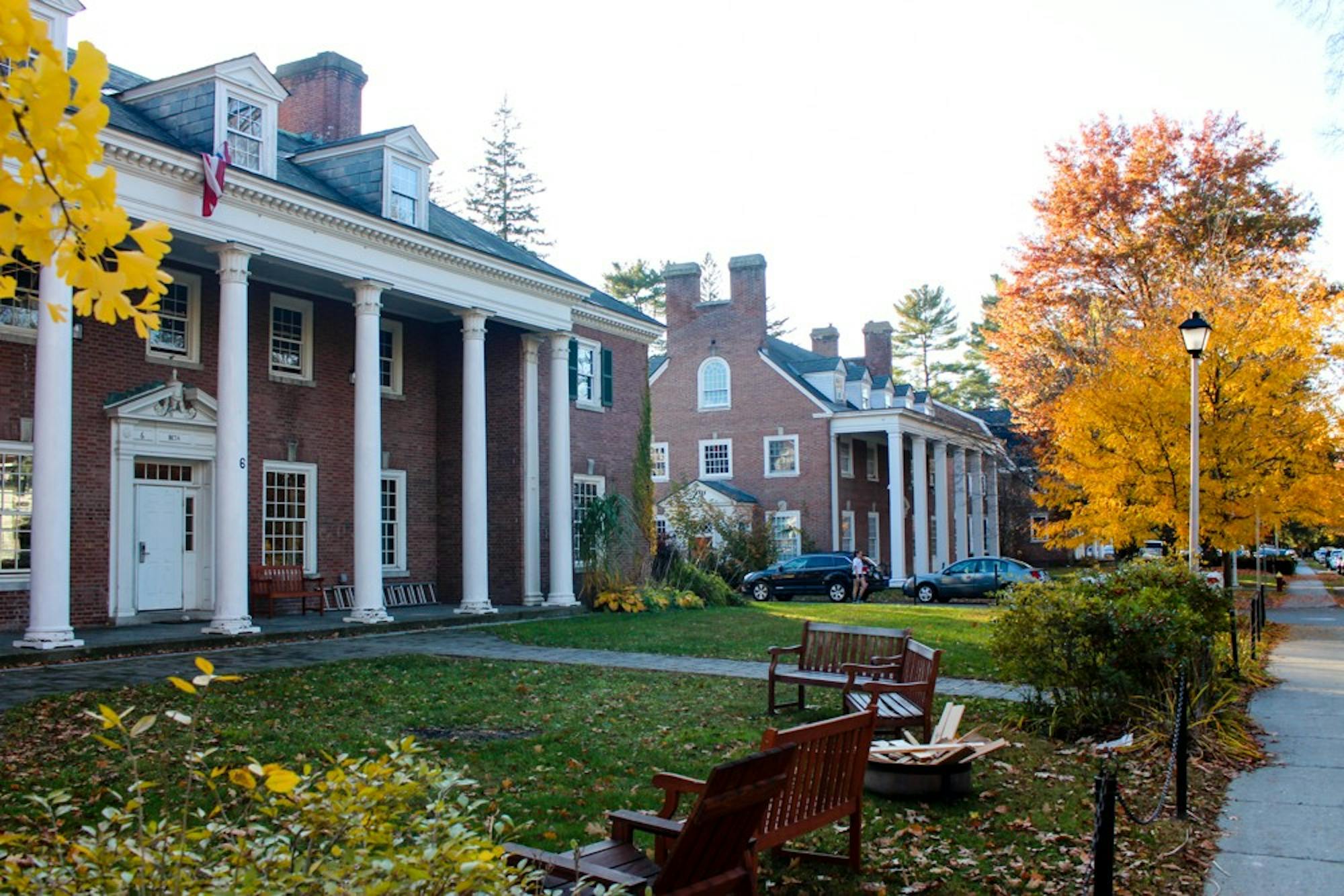As a queer person and a queer writer at Dartmouth, I believe that amplifying marginalized voices and telling alternate narratives is and should be my main focus. Dartmouth is a very old institution, and, for most of its history, it has been an unwelcoming space for anyone who is not a cisgender, straight, white man. It was one of the last Ivy Leagues to coeducate, had a famously homophobic chapter under Laura Ingraham’s tenure as editor of The Dartmouth Review and remains a difficult place to be a person of color.
Because so many of the mainstream Dartmouth social spaces — particularly Greek life — have a long history of perpetuating these injustices, oftentimes, the stories I write center the experiences of queer people occupying alternative social spaces, such as housing communities, gender-inclusive Greek spaces and LGBTQ+ activism groups. These groups have an incredible track record of providing fun and safe spaces outside of the more entrenched heteronormative social spaces on campus.
However, it’s important to remember that although Dartmouth’s mainstream social spaces may not have been designed with queer people in mind, many queer people occupy and enjoy them regardless. There are queer students in the Greek system who find their communities there, who thrive in sororities and fraternities despite the system’s heteronormative and gendered structure.
I am one of these people. I am a member of a sorority, and although I didn’t initially expect this, it has become my central social space on campus. It’s where I live, where I’m a leader and also where I’ve made my closest queer friends. This isn’t to say that my sense of belonging in Greek life hasn’t been enabled by privilege — as a white, cisgender person, Greek life was designed to fit my identity in many ways. Within the queer community, there are significant layers of privilege that exist in spite of shared LGBTQ+ identities, and I would be extremely remiss to not acknowledge these as I reflect on my own experiences in the Greek system.
In its essence, this article is meant to be a reassurance that there is space for queer students in the mainstream. It is ok to not always be edgy, and to want into the system that 60% of Dartmouth students end up joining. During my time at Dartmouth, I have often felt too mainstream for the queer community and too gay for the straight community. It can be a challenging line to walk, but I’ve also found that there are a lot more people on that line with me than I knew at first.
These days, I feel like I have a community in my sorority where that grey area is not only possible, but embraced. Sometimes I resent the heteronormative structure of tails, but at the end of the day, our tails have also been some of the nights where I’ve had the most fun, surrounded by girls I consider to be my best friends. I’ve also been able to witness the growth of my sorority’s internal queer community, and, as a very out person, helping foster queer community within a traditionally straight space has been incredibly rewarding. There are so many more queer people involved in Greek life that I expected coming in, and with every rush class, that population is increasing.
The institution of Greek life is deeply flawed, just like the larger institution of Dartmouth. It is also an institution in which I have made my dearest friends, found valuable queer community and had the most incredible experiences of my college life. All of these things can be true, and I think that holding them in tension is part of what it means to be a LGBTQ+ student in the mainstream. And at the end of the day, this is a position I chose to not only occupy, but have come to love.
Caris is a '23 from Long Beach, CA and is majoring in religion modified with art history. When not editing stories for the Mirror, you can find her playing club soccer, snowboarding at the Skiway or sipping coffee in Sherman Art Library. After college, she plans on attending graduate school in religion.




